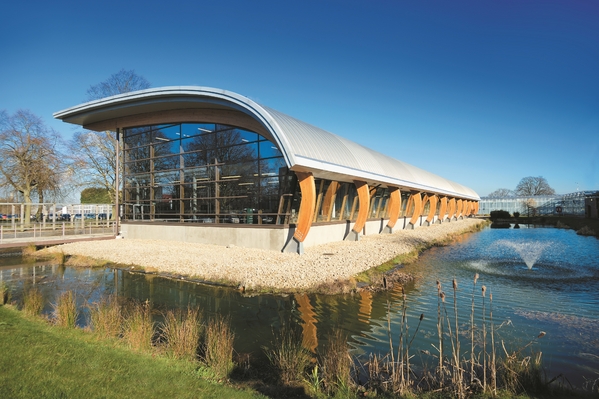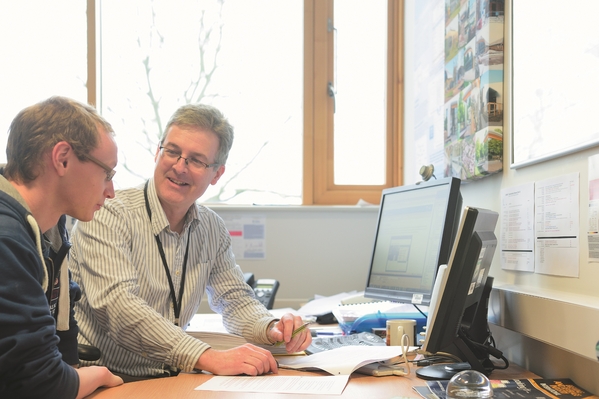Beer gets the appliance of science
Added: Friday, March 4th 2016

There’s a time capsule under glass in the entrance to the Centre for Bio-energy and Brewing Science at the University of Nottingham. The capsule was created in May 2010 and it includes a copy of The Times newspaper for 12 May, three sachets of yeast and a poem by Katherine Smart, the first chair of brewing science in the new department.
It’s a sign of the times that brewing is on such an upward curve in Britain that a major redbrick university has created a specialist department to cater for the growing number of people keen to enter the profession.
For many years, the only brewing courses in the country have been carried out at Heriot-Watt University in Edinburgh. But the clamour from existing brewers to hone their skills and from those keen to take up brewing has led to Master of Science courses being created at Nottingham University and a course for micro-brewers at Sheffield.
The heartbeat of Nottingham’s department is an impressive 10 hectolitre pilot brewing plant where major research is conducted into all aspects of beer-making. In particular, brewers, lecturers and students can work on improving techniques in such vital areas as savings on energy.
Vast amounts of water are needed to make beer and the pilot plant analyses how water can be cleaned and recycled. Further research looks at how to reduce the carbon footprints in breweries: carbon dioxide is created naturally by fermentation and is widely used to both store and deliver beer to the bar.
But it’s essential, in order to protect the environment, that the use of the gas should be carefully controlled and prevented from leaching into the atmosphere.
A large amount of time goes into researching yeast, the catalyst that turns malt sugars into alcohol. There are three vessels in the brewhouse where yeast is analysed in depth to enable brewers of both ale and lager to produce cleaner and more flavourful beers.
Hops are under the microscope in the pilot plant. Not only is the hop plant analysed to study its impact on beer flavour but the resident brewers and lecturers are also looking at how drinkers react to different types of hops. They are also looking at a possible new role for the hop – as a means of “fining” or clarifying beer at the end of the production cycle. At present, beer – cask ale in particular – is cleared of yeast sediment by adding isinglass, which is made from fish bladders.
You don’t have to be a dedicated vegetarian or vegan to wish that fish bladders weren’t used to clear your favourite pint. A growing number of brewers not only don’t use isinglass but also believe it has a negative impact on the finished product.

The work being carried out at Nottingham is looking at how hops, once they have been used to add aroma and flavour during the brewing process, can then be recycled as a clearing agent to remove yeast from the finished product.
The brewing department was created following long discussions from 2005 between Katherine Smart, who works for SABMiller, and the food science department at the university to see if brewing courses could fit with the wider work of the department. The result has been the creation of brewing courses designed initially to train SABMiller students from around the world. Funding has come from the global brewing group, the university and from EU regional development grants. The department now caters for a broad range of students: some come from SABMiller but many other brewers can also send their employees while others offer internships to students from the university.
It’s not a one-way street: brewers and teachers go out into industry to advise brewers, especially the growing number of smaller craft producers, on how best to use malt, hops, yeast and water to make the perfect pint.
The university offers two MSc courses. One is a four-year, part-time course for people already working in the industry. Students on this course study at their workplace and home but also attend the university for two-weeks of intensive study before their exams.
The second course lasts for one year and is residential. This is aimed at students who are keen to enter the industry. Students on both courses are backed by an impressive group of specialist lecturers, including Professor David Quain, ex-Heriot-Watt, and Dr David Cook (above), both with long experience of working in the industry before entering the academic world.
There are two clouds hovering over the future of the department. Could the funding from SABMiller and the EU dry up? SABMiller is in the throes of being taken over by AB InBev while the referendum in June could end Britain’s relations with the EU.
Let’s hope – fingers and mashing forks crossed – that this impressive work can continue.









